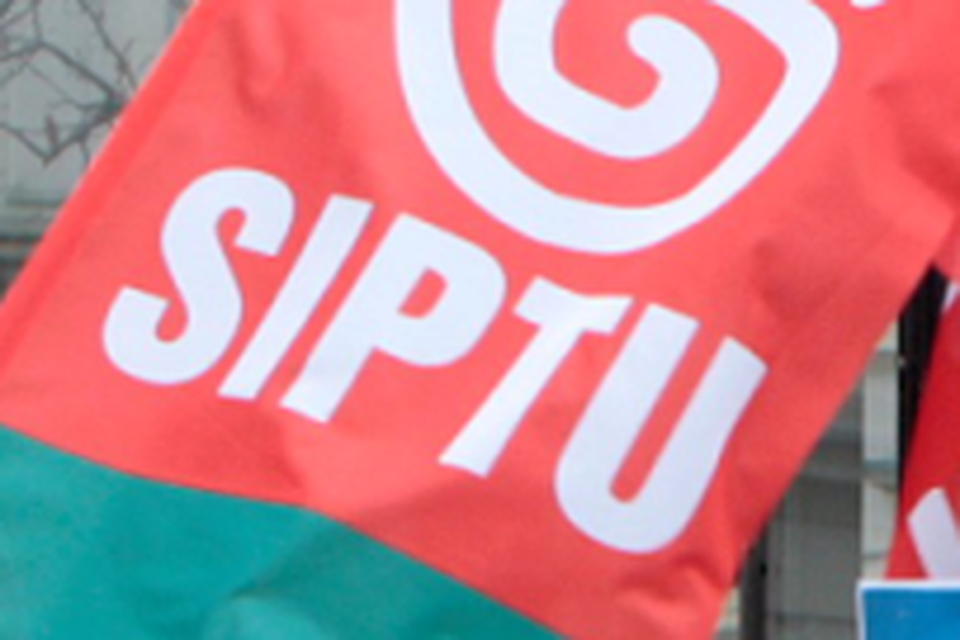SIPTU healthcare workers vote overwhelmingly for talks on new public sector pay deal to be brought forward
Photo: Stock Image
SIPTU healthcare workers have overwhelmingly backed a demand for talks on a new public sector pay deal to be brought forward to mid 2019 because of the spiralling cost of living in Ireland.
Ireland's largest union has now been asked to direct the Public Sector Committee of the Irish Congress of Trade Unions (ICTU) to request that the Government and social partners bring talks on a successor to the current pay deal forward to next summer - almost a year earlier than planned.
The move presents the Government with a major headache as Taoiseach Leo Varadkar had hoped the issue of a public sector pay deal would not be a factor in a 2019/2020 General Election.
Junior Health Minister Finian McGrath, who attended the Cork conference, indicated that he understood the position healthcare workers now found themselves in.
He also signalled that he would consider their stance on the issue.
The Public Service Stability Agreement (PSSA) pay deal only came into force earlier this year and is scheduled to run until 2020.
PSSA was negotiated and agreed in late 2017.
However, SIPTU national executive committee member, Broc Delaney, told the union's healthcare division meeting in Cork that the current public sector pay deal has been undermined by spiralling cost of living issues.
SIPTU's healthcare division represents more than 40,000 workers including nurses, hospital workers, paramedics and home care assistants.
"There has been a growing impact of the economy on our members," Mr Delaney said.
"Many of our members have yet to have their loss of pay fully restored. Government has a responsibility to address issues which impact on the pay of our members."
Mr Delaney said that the pay of healthcare sector as well as many other workers has been undermined by spiralling cost of living and related expenses
He said that rent, childcare and travel costs have been rising dramatically to the detriment of many families.
"These are all increasing beyond the ability of workers to pay," he said.
Mr Delaney said it was clear that a successor to the PSSA now needs to be negotiated from mid 2019, far earlier than anticipated.
"We are calling on Public Sector Committee of ICTU to talk about successor to the current deal by 2019."
"All workers are entitled to certainty and stability."
Helen Tobin, a Section 39 health worker, backed the motion.
She said workers were struggling to cope with pay restoration against a back drop of soaring costs across Irish society.
The motion was passed overwhelming without a single dissenting vote.
The SIPTU health division conference also passed motions backing the enhanced role of paramedics and the status of home care assistants.
Paramedic Robert Fitzgerald said they wanted union support for recognition of the upskilling of paramedics.
"Paramedicine is the new title for advanced pre-hospital care," he said.
Paramedics operating with the National Ambulance service now cater for a population of 4.9 million people and have a continually expanding role.
"We care for prince and pauper without fear or favour," he said.
SIPTU have now endorsed paramedic demands that the Department of Health & HSE to recognise their roles and responsibilities.
SIPTU has also backed demands from Home Care Assistants (HCA) that their status be recognised within the healthcare sector.
HCAs warned they want their roles to be recognised and their status accepted through a commitment to using only properly qualified and trained staff.
SIPTU's health division also backed a motion based on a landmark Spanish labour ruling that a private sector worker who does not operate from a set base can consider their working day to include travel time between jobs.
"It is unbelievable that travel time between jobs should be considered your own time and not work," one delegate warned.
Join the Irish Independent WhatsApp channel
Stay up to date with all the latest news















